
The future of the Kosovo-Serbia dialogue process
On 29 October, the German Embassy in Washington DC and the European Council on Foreign Relations (ECFR) will host a public discussion on the future…

On 29 October, the German Embassy in Washington DC and the European Council on Foreign Relations (ECFR) will host a public discussion on the future…

A new EU agreement on lithium could improve aspects of governance in Serbia – if the bloc makes the most of this new partnership with Belgrade
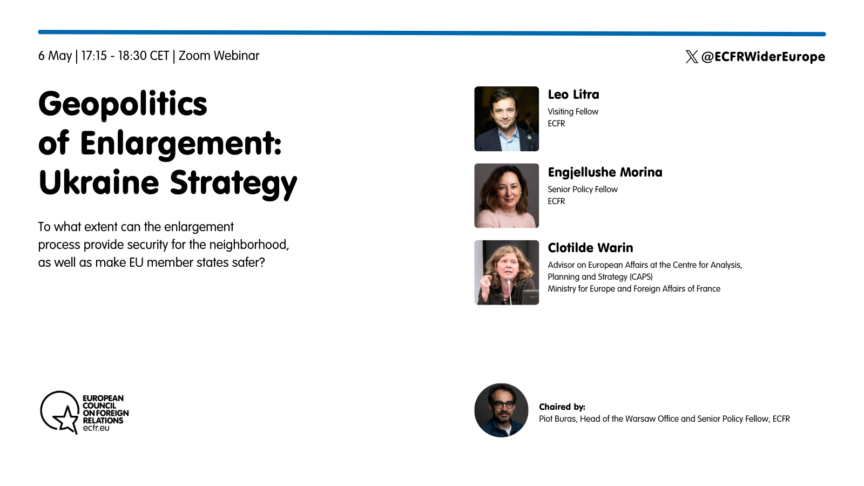
This webinar will discuss current revisions of the EU approach to enlargement policy and the security implications for Ukraine and the neighborhoods

The EU’s green agenda is threatened by a predicted surge to the far-right in the upcoming European Parliament election. Against this, mainstream candidates should remind voters that climate policy is not only necessary for decarbonisation, but an essential tool for EU enlargement

That EU enlargement is a geopolitical imperative is no longer in doubt. But to make enlargement happen, the EU may need to decouple bilateral disputes from the accession process
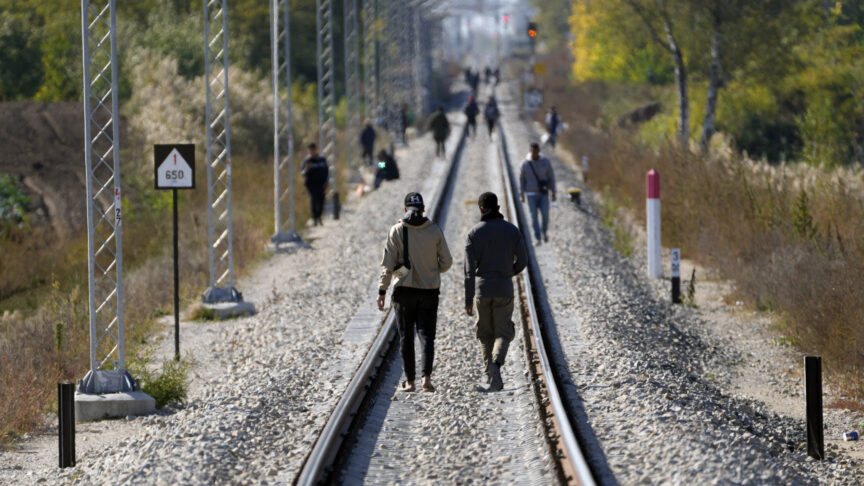
To tackle the political and economic challenges posed by shrinking populations, Balkan governments need to approach immigration as an opportunity, rethinking their policies and political messaging
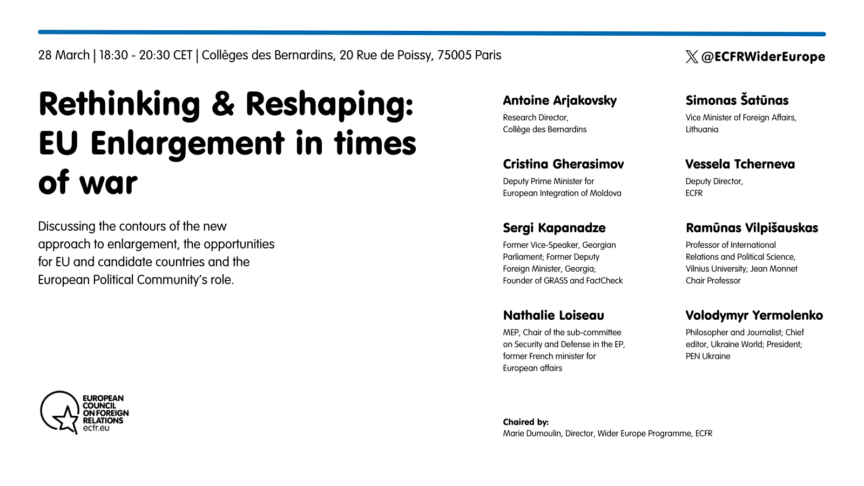
Russia’s war against Ukraine has prompted European policymakers to rethink their approach to enlargement. What form does this new approach take, what are the opportunities for EU and candidate countries, and what is the European Political Community’s role?
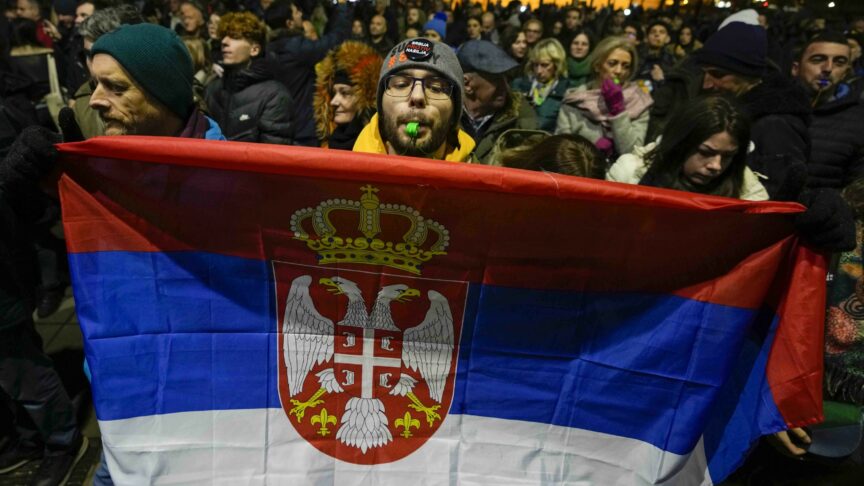
Serbia is rapidly veering off its course for accession. Last month’s potentially fraudulent general election and Belgrade’s increasing distance from EU foreign policy should worry those in Brussels
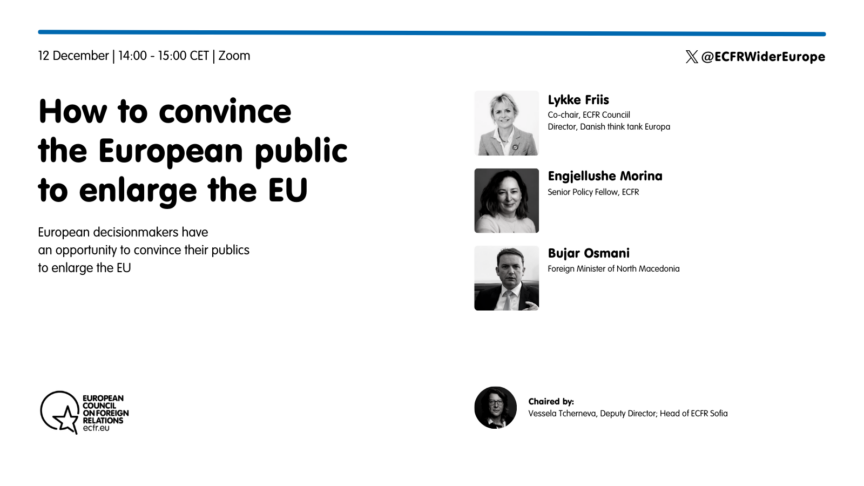
This event will discuss new polling data of six key EU member states in the enlargement debate (Germany, France, Denmark, Austria, Poland, Romania) and reveal what voters think about the geopolitical imperative of EU enlargement
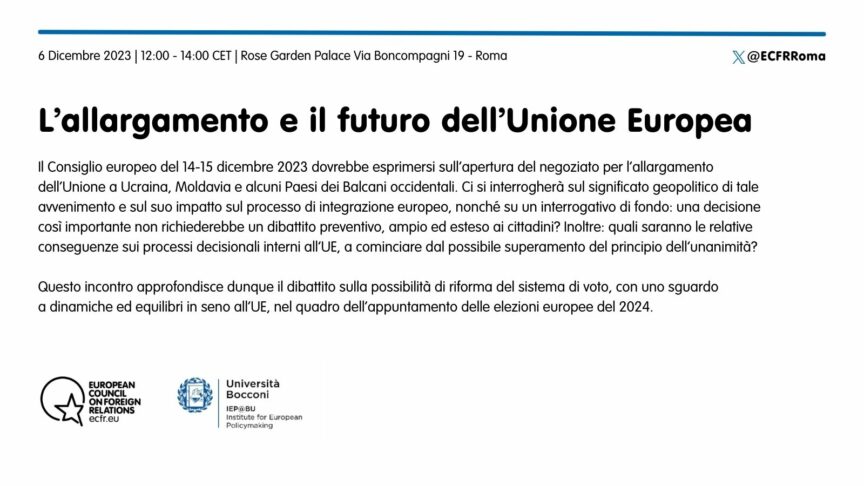
Secondo appuntamento di una serie di tre working lunch realizzati congiuntamente da ECFR Roma, SDA Bocconi e l’Institute for European Policymaking @ Bocconi University
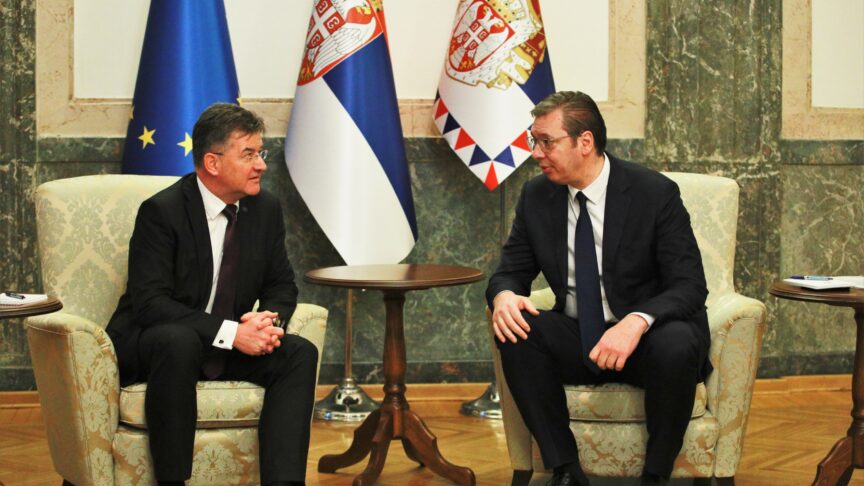
A new agreement between Kosovo and Serbia is a welcome step – but the EU can transform the situation by setting out clearer accession prospects for both countries
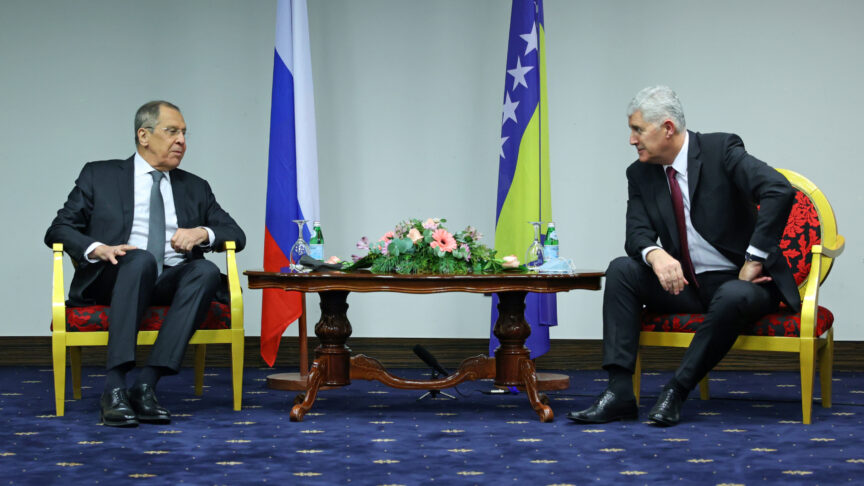
Russia is working to keep Bosnia divided. But many of the country’s problems are homegrown or exacerbated by neighbouring states
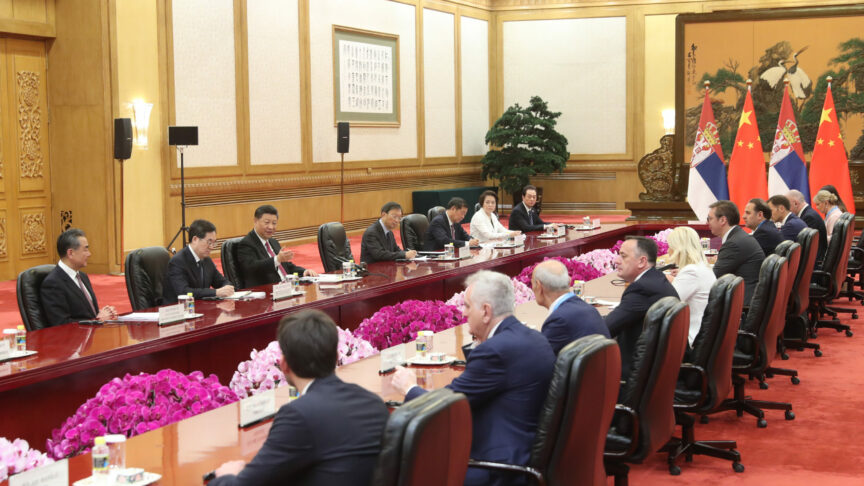
As European and US ambivalence towards the Western Balkans persists, the region will be in increasing danger of falling into an endless spiral of competition between various foreign actors
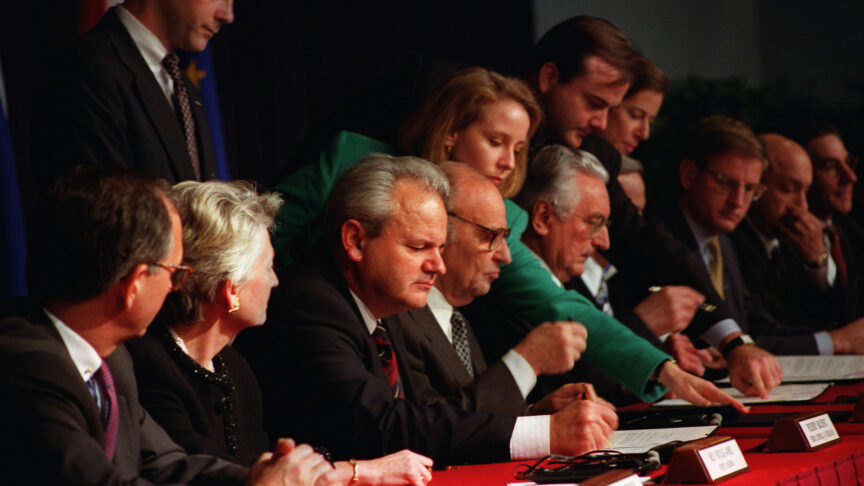
It will be difficult to sustain progress for Bosnia or the region without a credible and clear EU accession process
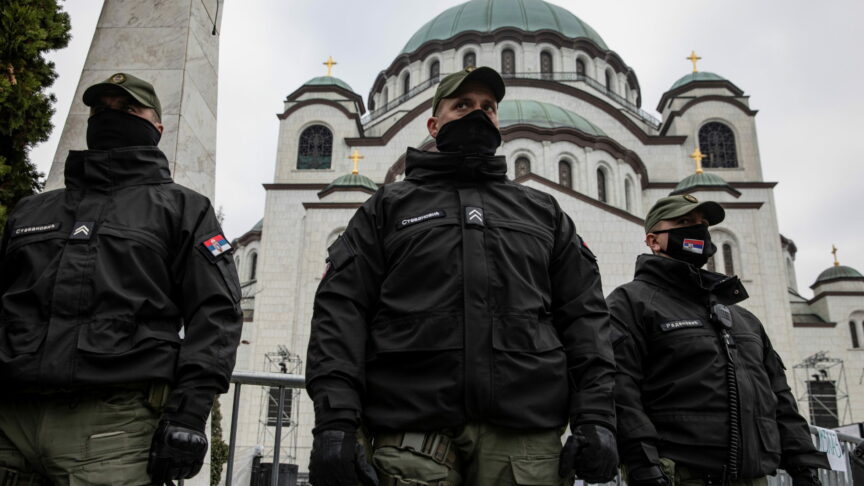
The covid-19 crisis has accentuated Western Balkans countries’ pre-existing vulnerabilities – but has not brought about a new political era in the region

Restoring independence to the judiciary and strengthening the rule of law are key to the country’s future stability and success
The EU should demonstrate its commitment to the Western Balkans by encouraging countries there to resolve their outstanding disputes
Introduction To display the YouTube video provided by Google, click the button below. This means Google will receive technical data about your device or browser,…
Introduction Few parts of Europe are more marked by emigration than the Western Balkans.[1] Yet despite many decades of its people leaving…
The EU should do more to promote circular migration as part of their ongoing pursuit of European integration

A new EU agreement on lithium could improve aspects of governance in Serbia – if the bloc makes the most of this new partnership with Belgrade

The EU’s green agenda is threatened by a predicted surge to the far-right in the upcoming European Parliament election. Against this, mainstream candidates should remind voters that climate policy is not only necessary for decarbonisation, but an essential tool for EU enlargement

That EU enlargement is a geopolitical imperative is no longer in doubt. But to make enlargement happen, the EU may need to decouple bilateral disputes from the accession process

To tackle the political and economic challenges posed by shrinking populations, Balkan governments need to approach immigration as an opportunity, rethinking their policies and political messaging

Serbia is rapidly veering off its course for accession. Last month’s potentially fraudulent general election and Belgrade’s increasing distance from EU foreign policy should worry those in Brussels
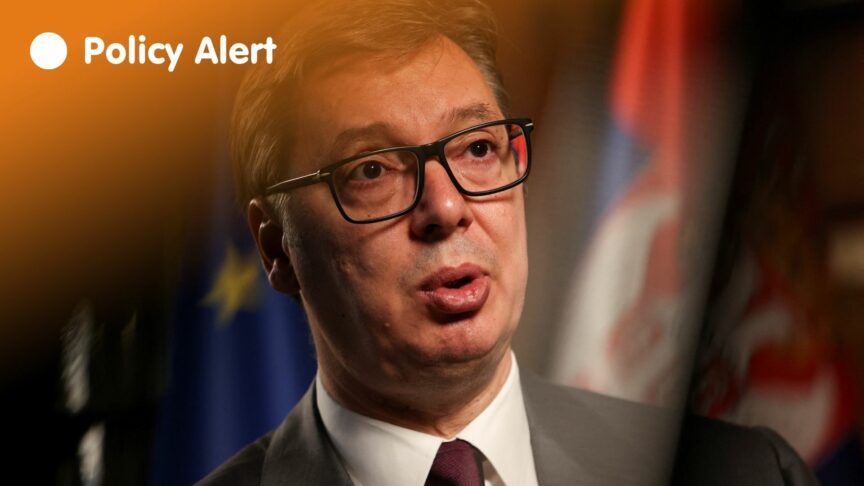
Serbia’s partial withdrawal of troops along the border with Kosovo should not be enough to quash fears of Serbian aggression, instead the EU and the US must reevaluate their relations with the country’s president

Escalating violence in the north of Kosovo undermines the already difficult dialogue process. The EU and US need to address this destabilisation head on
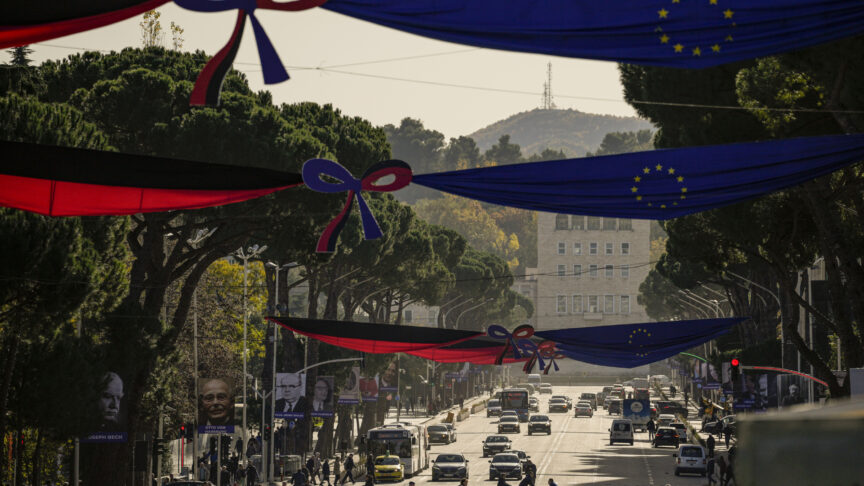
With Russia’s war on Ukraine raging on its eastern border, EU enlargement in the Western Balkans has a new geopolitical urgency. The EU must commit to supporting their accession – and a fixed date like 2030 alongside a staged approach will add credibility to this commitment
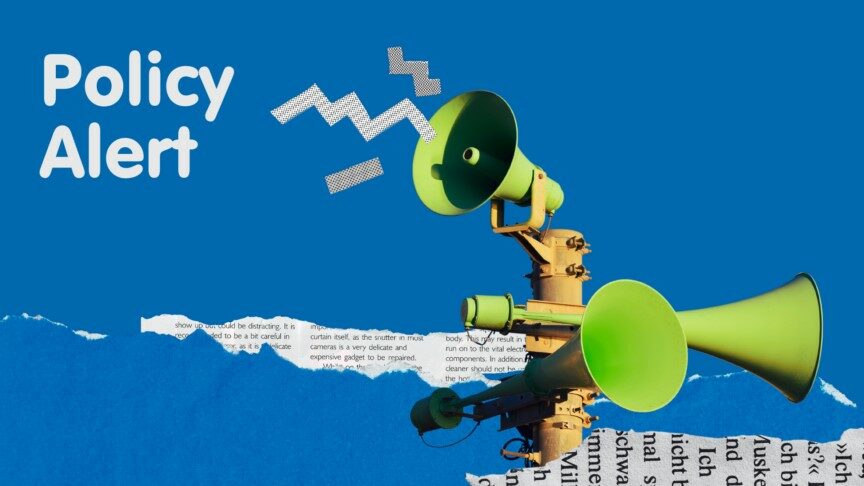
As NATO convenes in Vilnius, Kremlin proxies are undermining Bosnia and Herzegovina’s sovereignty. Allies need to formulate a diplomatic strategy to prevent a military crisis

The new energy cooperation between Hungary and Serbia threatens to undermine the EU’s energy sovereignty and pull Serbia further from the EU
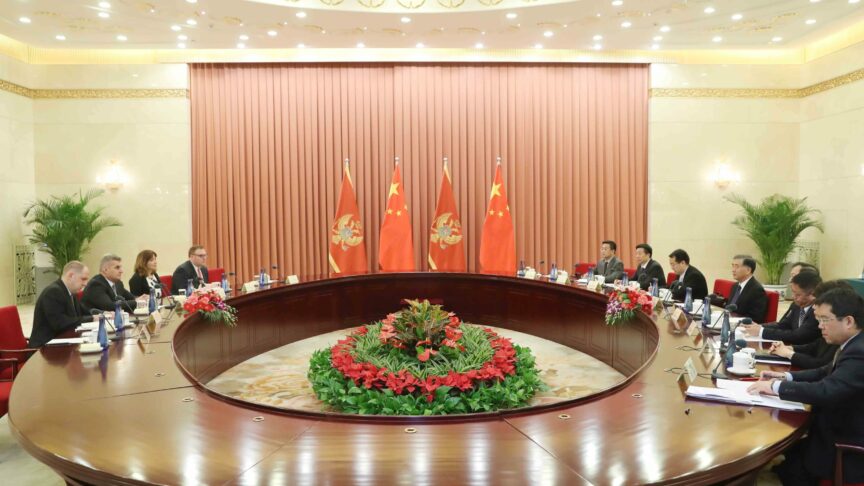
China is building up its influence in the Western Balkans through projects focused on everything from energy and infrastructure to culture, education, and media. If the European Union is to achieve its geopolitical goals in the region, it will need to understand the nature of competition with Beijing in all these areas
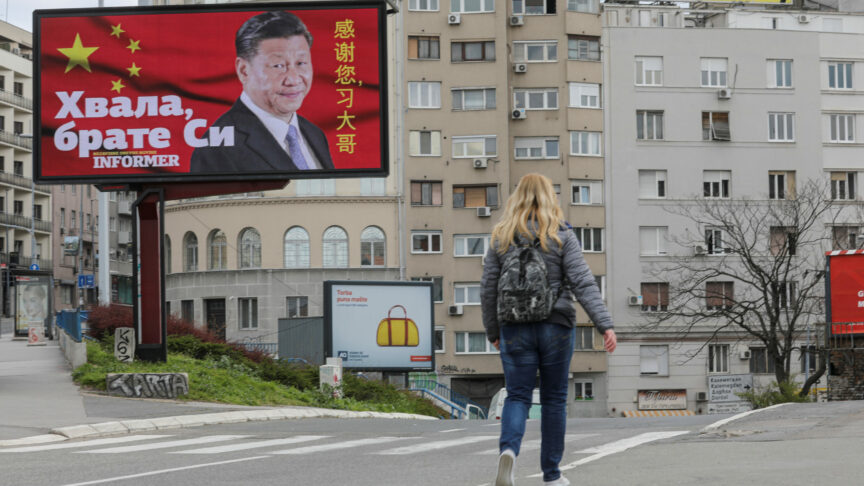
How much influence does China already have in the Western Balkans and how should European policymakers react?
North Macedonia and Albania wanted to start negotiations with the EU after having been candidate countries since 2005 and 2014. But the enlargement plans seemed…
Mark Leonard speaks with Vessela Tcherneva and Robert Cooper about the contested result and how it might be solved. Bookshelf: Carnegie report on…
Conférence publique avec Hashim Thaci, Président de la République du Kosovo, modérée par Sylvie Kauffmann, Directrice éditoriale au Monde. …
Mark Leonard talks with the director of ECFR's office in Sofia, Vessela Tcherneva and the director of ECFR's Wider Europe programme, Fredrik Wesslau about the…
Francisco de Borja Lasheras, director de la oficina de ECFR Madrid, entrevista a Andreja Stojkovski, presidente del Macedonian Centre for European Traininng, en Skopje, Macedonia
Listen on Mixcloud What does the ICTY’s track record suggest about the future direction and potential of the International…
Listen on Mixcloud Francisco de Borja Lasheras participó el pasado 26 de febrero en la Conferencia Internacional “Civil Society…
In the second of two podcasts, Spiros Economides of the London School of Economics argues that the EU needs to think strategically about how…
Nick Witney, co-author of the ECFR publication 'Rebooting EU foreign policy', explains the need for a rethink of how the EU deals with the…

On 29 October, the German Embassy in Washington DC and the European Council on Foreign Relations (ECFR) will host a public discussion on the future…

This webinar will discuss current revisions of the EU approach to enlargement policy and the security implications for Ukraine and the neighborhoods

Russia’s war against Ukraine has prompted European policymakers to rethink their approach to enlargement. What form does this new approach take, what are the opportunities for EU and candidate countries, and what is the European Political Community’s role?

This event will discuss new polling data of six key EU member states in the enlargement debate (Germany, France, Denmark, Austria, Poland, Romania) and reveal what voters think about the geopolitical imperative of EU enlargement

Secondo appuntamento di una serie di tre working lunch realizzati congiuntamente da ECFR Roma, SDA Bocconi e l’Institute for European Policymaking @ Bocconi University
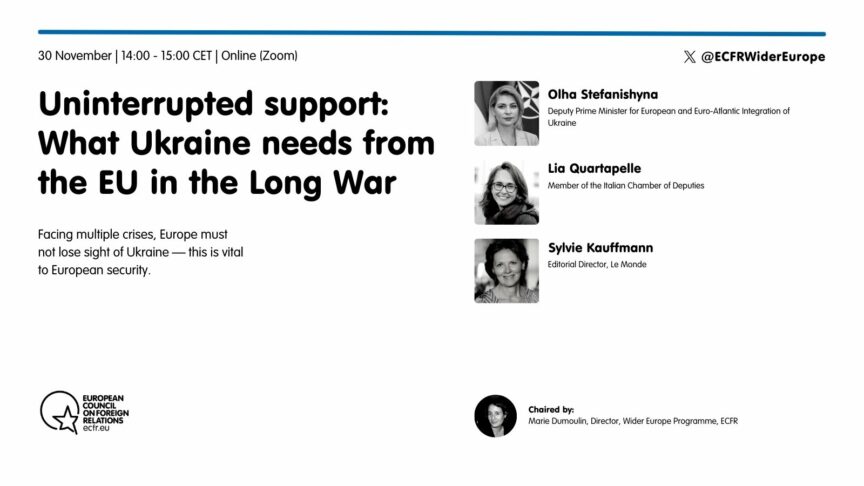
Ahead of the European Council in December where accession talks with Ukraine are expected to be opened, the European Council on Foreign Relations (ECFR) is…
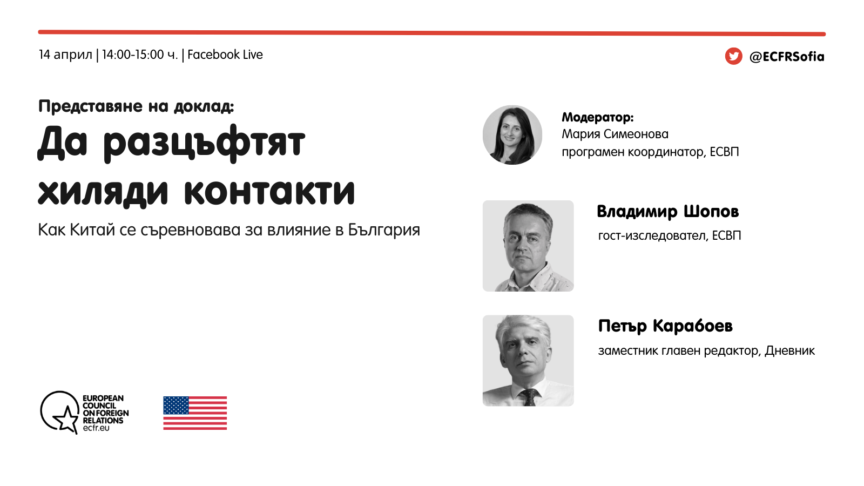
Гледай на Фейсбук Софийският офис на Европейския съвет за външна политика има удоволствието да Ви покани на представянето на новия доклад…
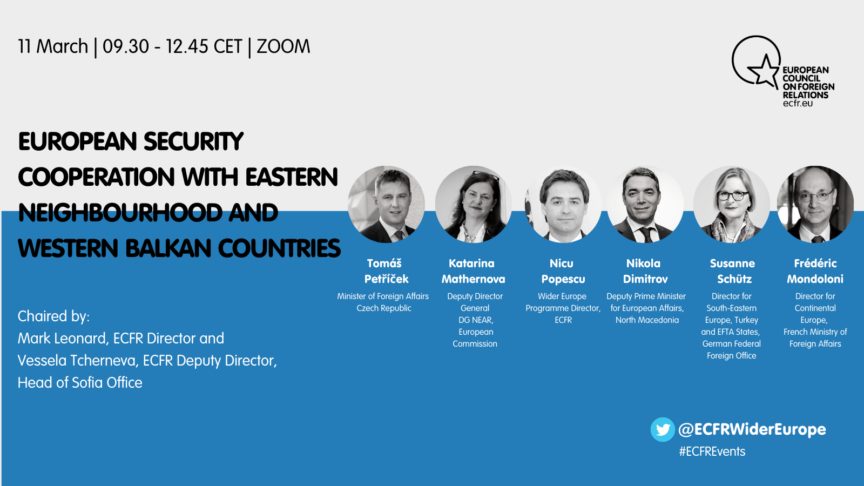
This high-level event will discuss ideas and recommendations that ECFR policy fellows Nicu Popescu and Gustav Gressel make in their 2020 policy brief on the security compact, and to extend these ideas to the Western Balkans
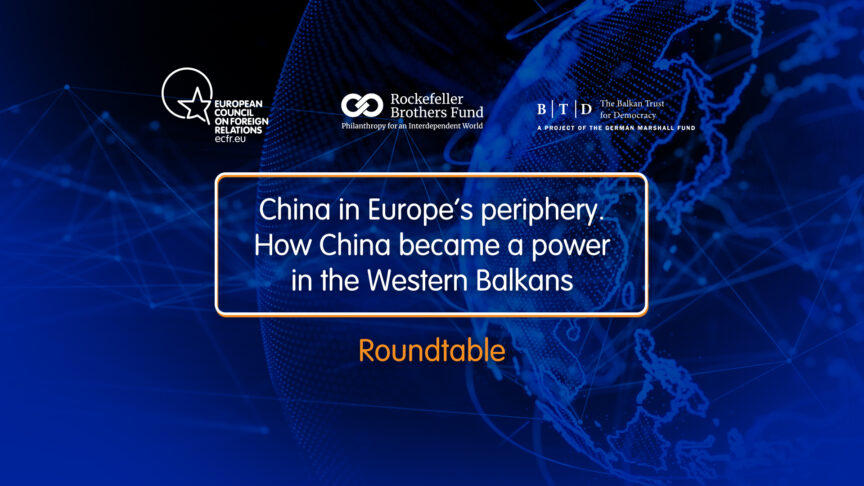
The virtual roundtable, “China in Europe’s periphery. How China became a power in the Western Balkans”, will bring a small group of experts, officials, NGO and media representatives together in a discussion on China’s embedding in the region

This two-day conference marking the 25th anniversary of the Dayton Peace Agreement gathered a distinguished line-up of speakers to discuss the challenges facing the country and to explore options for transatlantic cooperation in the Western Balkans